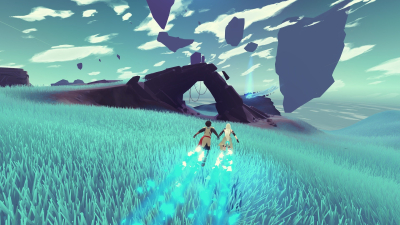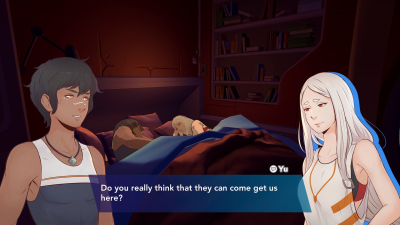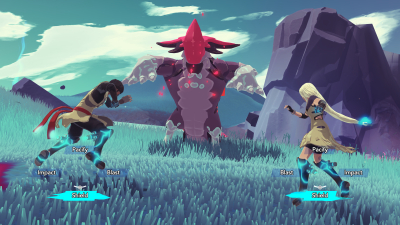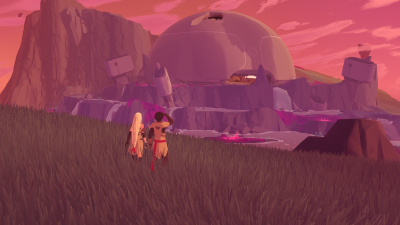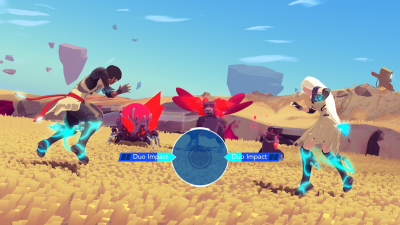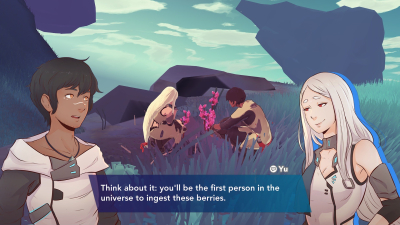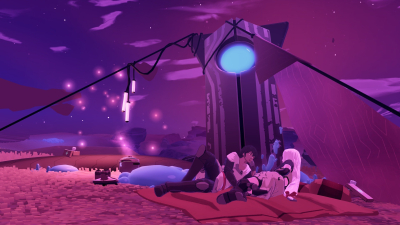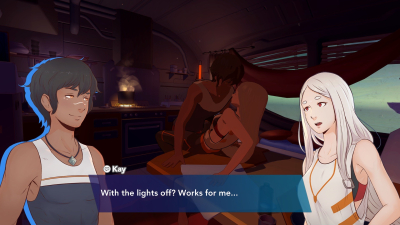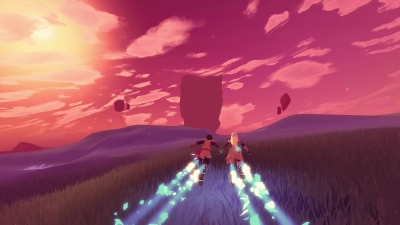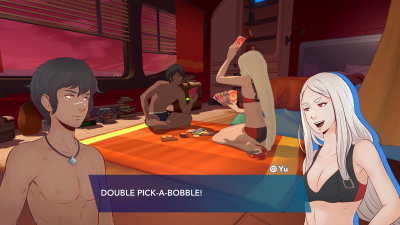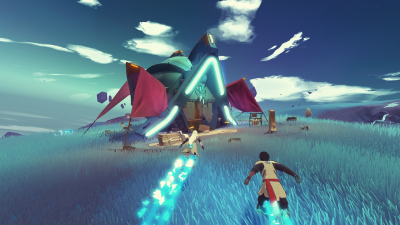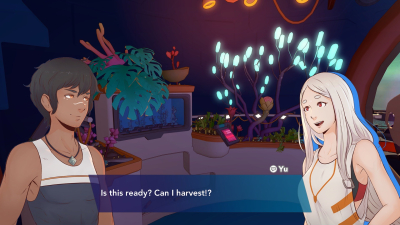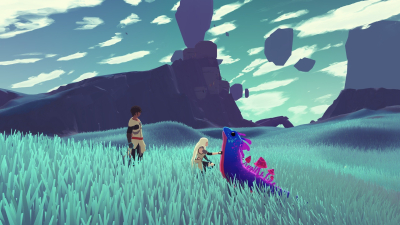Yu and her friend Kay have run away and landed on a planet whose surface consists of small islands. Energy called tide holds these together and is used by the runaways primarily as a source of energy that powers their antigravity shoes, which is why the two explore their surroundings while floating. On narrow tidal currents, they not only recharge their batteries but also reach particularly high platforms, to which they would otherwise have no access, as if with a kind of rails.
Thus, Yu and Kay explore their new home in an elegant way, discover new islands and find wreckage there, which they use to repair their ship. They also collect a substance called rust, which they not only need for repairs but from which they also create amplifiers that they use in combat to carry out powerful attacks, among other things.
In general, every aspect of the game is not just a statistic but is presented as a "tangible" part of the adventure. For example, Yu and Kay have to collect fruits and later even grow them themselves to make food or medicine to fortify themselves at home or rest stops. The rest stops, therefore, make longer trips possible, even if not all supply options are available there. These gentle incentives thus serve to maintain a logical rhythm of exploring and returning home, which pleasantly grounds the adventure.
Only at home, after all, can Yu and Kay interact with items that are given as rewards for attentive exploration - this, too, adds to the believable experience. Only at home, as mentioned, can they process rust, tend their garden, toast each other for an (automatic) level up, and ponder recent events. Most importantly, only at home do certain conversations take place, such as before showering. Or exactly during it.
Thus, through numerous dialogues over time, you learn why Yu and Kay left their home, who exactly they are, what the abandoned buildings are all about, and much more.
You are there when they tease each other, negotiate individual interests against their common future, dream together, and even argue sometimes. Even sex plays a role - in a completely blunt, but never even remotely exhibitionistic way. It's nice that this is possible in an audiovisual medium! It helps, of course, that the two are an exceptionally charming couple whose voices are a joy to listen to, and to whom the authors put the sincere verve of young joie de vivre into their mouths instead of hackneyed platitudes.
CONCLUSION
It's a pity that cooperative play, of all things, only seems like a half-hearted essay, although Haven seems to be made for it. After all, you experience an adventure here that revolves as much around its protagonists as it does around their story. Yu and Kay not only have to master the challenges of their new home, but also settle in as a young couple. And the fact that they manage to do this in such a sympathetic and natural way almost throughout while addressing big issues of a relationship quite naturally, makes Haven something special. Moreover, as straightforward as exploring their world may be in a playful sense, the thoughtful exploration, gathering, and combat are relaxing and motivating, sometimes even pleasantly challenging. So Haven is not a prosaic drama about the burden and suffering of love - but like a damn charming piece of empathetic youth literature.

